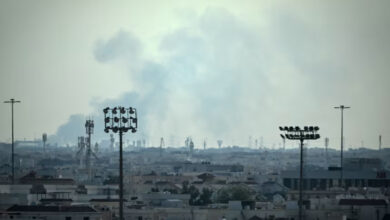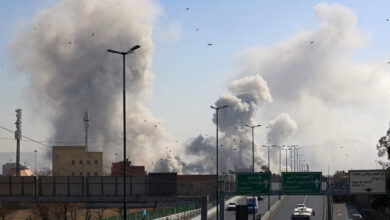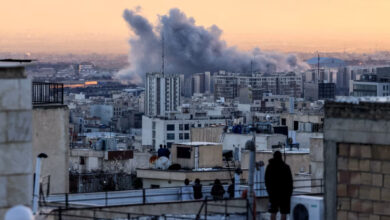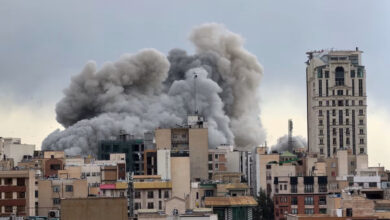DUBAI–Messages of mourning and anger poured out from Iranian émigrés Wednesday as word spread of the apparent suicide of the youngest son of the country's late monarch. The reported death of 44-year-old Alireza Pahlavi at his home in Boston resonated through Iranian communities around the world as more than just of moment of grief, symbolizing for many another lost link to the era before the 1979 Islamic Revolution toppled the Western-backed shah.
In Iran, the official Islamic Republic News Agency carried a brief story that was the most-viewed early Wednesday. The website of state-run Press TV carried a factual account of the death under the headline: "Son of ex-dictator of Iran kills himself." Websites and social media outlets–which have become the lifeline for Iran's opposition movements–also became the main forums for the reaction to the death of Pahlavi, who had reportedly struggled with depression since his sister died of a drug overdose nearly a decade ago.
For years, he had immersed himself in academia and let his older brother, Reza Pahlavi, take the main political role as a figurehead for Iranian exiles. There was no apparent political link to the death.
On the official website of Reza Pahlavi–who announced the death of his brother–some of the postings were a study in the frustrations of Iranian émigrés. The messages offered condolences, but many veered into rage that the Islamic theocracy ruling Iran remains strongly in control and that emigres' dreams of returning to Iran remain distant. "Where is God's justice? Hell is too nice of a place for those who took our country and caused this much suffering," read one post.
The shah, Mohammad Reza Pahlavi, died of cancer in Egypt a year after he left Iran shortly before the defeat of his remaining forces in 1979. The new Islamic state quickly became an arch-foe of the United States after militants–angered over American aid to the shah–stormed the US Embassy and held 52 hostages for 444 days. The shah's family, meanwhile, sought haven in exile and many members eventually settled in the United States, where they carry no real political weight in the Iranian opposition.
The monarch's youngest son, Alireza, was born in Tehran, but attended schools in New York, Cairo and western Massachusetts before studying music as an undergraduate at Princeton University, ancient Iranian studies as a graduate student at Columbia University and postgraduate work at Harvard University. But he apparently struggled with depression following the death of his sister Leila in 2001, who was found in a London hotel room at age 31 after overdosing on barbiturates.
"Once again, we are joined with mothers, father and relatives of so many victims of these dark times for our country," his brother wrote on his website, announcing the death. Pahlavi's depression "grew over time–his departure from Iran, living in exile, the death of his father and then his sister to whom he was very close," said Nazie Eftekhari, who works in Reza Pahlavi's office in Washington and is a close family friend. "The deaths were a huge blow to him," she said.
In Boston, police said they found a man dead from an apparently self-inflicted gunshot wound shortly after 2 AM on Tuesday at a home in the city's South End neighborhood. Police would not confirm the man's identity, but a law enforcement official who was not authorized to release the man's identity and asked for anonymity confirmed that the man was Alireza Pahlavi. A police officer was seen late Tuesday afternoon going in and out of Pahlavi's Boston apartment and speaking with family representatives, who would not talk to reporters.
A neighbor, Dan Phillips, 42, said he did not know Pahlavi personally but recognized his picture and described him as someone who was very social and "who always dressed very dapper." "I would always see him walking around here and he used to wear blue jeans and a blazer," Phillips said.
Trita Parsi, the president of the National Iranian American Council, said in a statement that "the Iranian-American community was deeply saddened by the news of this tragedy." There are many divisions in the community, but on a day like this, I think we are all united in sympathy with the Pahlavi family for their tragic and painful loss," Parsi said.
Reza Pahlavi, who is based in the US, has spoken out in opposition to Iran's clerical regime. But he carries almost no influence among Iran's current opposition leaders, such as Mir Hussein Mousavi, who have challenged the ruling system after the disputed re-election of President Mahmoud Ahmadinejad in June 2009.
The protests and clashes after the vote marked the worst internal unrest in Iran since the Islamic Revolution. Pahlavi will head to Boston on Wednesday, Eftekhari said, and she expected his mother, the former empress Farah Pahlavi, who is currently in Paris, to go as well. Eftekhari said no funeral arrangements have yet been made.




